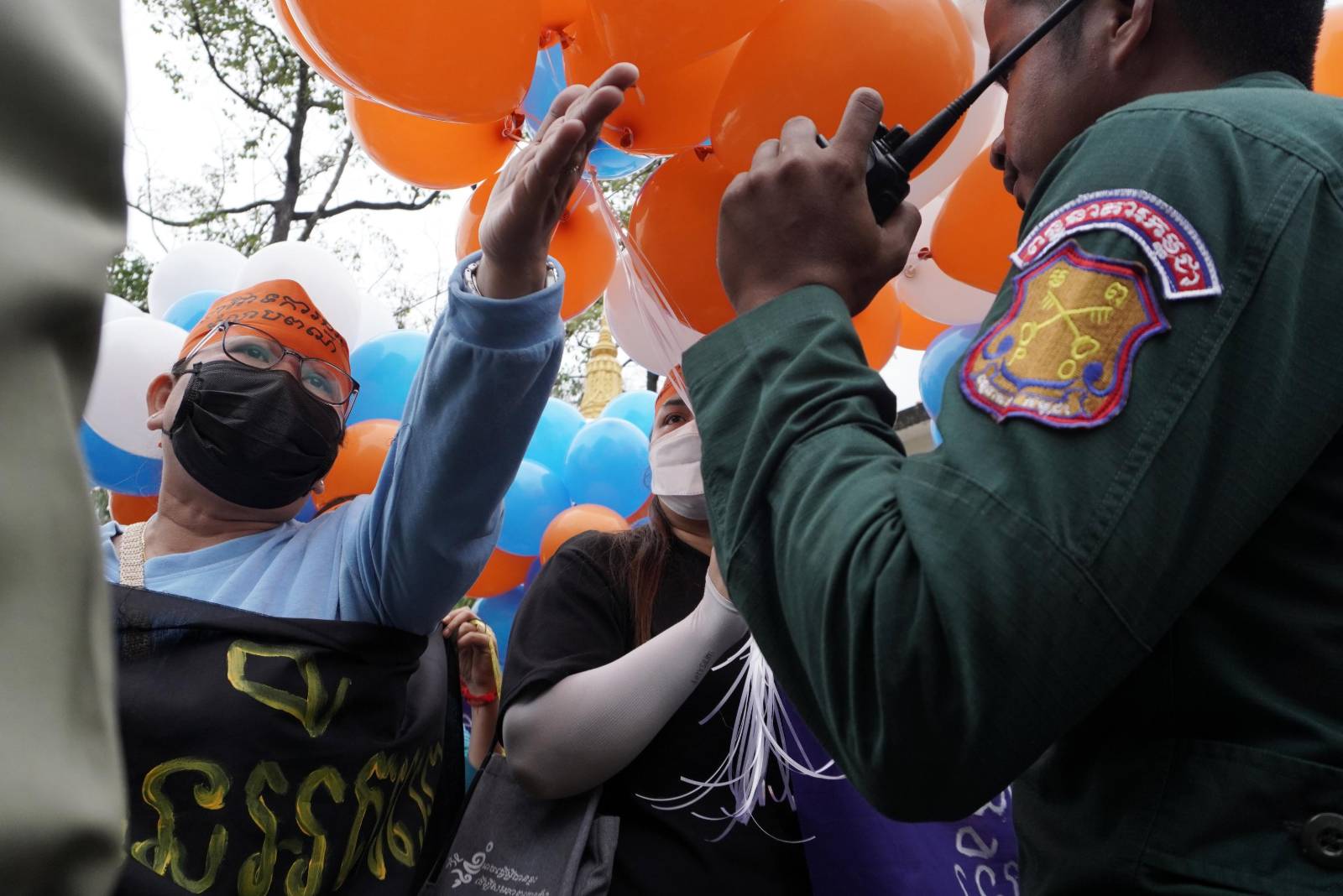Six NagaWorld union members want the Phnom Penh court to tell them the exact conditions under which they were given bail, after union president Chhim Sithar was arrested in November for allegedly violating a court-ordered travel ban.
The union members — Chhim Sokhorn, Klaing Soben, Ry Sovandy, Sun Sreypich, Hay Sophea and Touch Sereymeas — submitted a letter to the Phnom Penh Municipal Court on Monday asking for the court to list the exact bail conditions under which they were released from jail early last year.
At least 11 union members were arrested in late December 2021 and January 2022 during worker protests against mass layoffs at the NagaWorld casino. They were released in March after agreeing to certain conditions with the Labor Ministry, like pushing for a negotiated settlement to the dispute and refraining from joining the protests.
However, Sithar was arrested and sent to prison in November after returning from a labor conference in Australia. The court later said she had violated bail conditions and was not allowed to leave the country without informing the court. Sithar lawyers said they were unaware of the restriction on her movements, and her union colleagues said she had previously made a trip overseas and had returned without issue.
Sokhorn, who is the elected vice president of the union, said she wanted to know if there were any restrictions on her activities. After 10 months since their release, Sokhorn said the court had not given them a document listing the bail conditions.
“They only put the ban but didn’t let us know what conditions are in the ban,” she said. “So when we want to do something and we do it, we don’t know if it is against the ban.”
Soben, another union member, said court officials took their letter but did not say what the next step was.
“Samdech [Hun Sen] said don’t always make an arrest, it has to be clearly investigated. Prison does not always have to be [the first step], but they make arrests and charge later,” Soben said.
Y Rin, Phnom Penh Municipal Court spokesperson, said the court had received the workers’ request and the judge contacted their lawyer to collect the order putting them under court supervision.
He added that the court administration had previously worked with district police to send the documents to the parties involved.













